José Mário Branco
Nacimiento : 1942-05-25,
Muerte : 2019-11-19
Historia
José Mário Branco (25 May 1942 – 19 November 2019) was a Portuguese singer-songwriter, actor, and record producer.
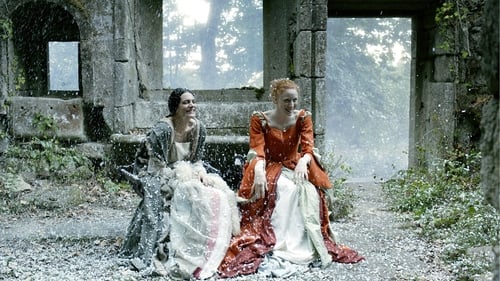
Original Music Composer
En algún momento del Medioevo tardío, el noble Herren von Ketten (Marcello Urgeghe), en pleno conflicto con el Episcopado de Trento, busca matrimonio en un país lejano, Portugal. Su esposa será una mujer portuguesa (Clara Riedenstein) que se instalará en el castillo de los von Ketten al norte de Italia. Recluida allí, con su esposo en la guerra, quedará embarazada de su primer hijo. Su vida transcurrirá entre criados, lecturas, juegos con un cachorro de lobo y el aprendizaje de algunos oficios manuales. Será un universo pautado por el ritmo masculino y en el que las mujeres deben parir, criar y esperar.

Documentary about the Portuguese singer Camané and the process of creating one of fado's key works, revealing a rigorous search that allows him to achieve masterful interpretations.

Himself
A documentary about the life and work of musician, composer, poet, actor, activist, columnist, and music producer José Mário Branco, a multitalented man who has been using his songs to transform the country and whose lyrics make as much sense today as they did 40 years ago. The shooting began in 2005 and covered seven years of rehearsals, recordings, talks and concerts, both in Portugal and France. In this film, José Mário Branco talks about music, his convictions, his generation, the dictatorship, the colonial war and his imprisonment and exile. It is the portrait of a man for whom “the song [was always] a weapon.”
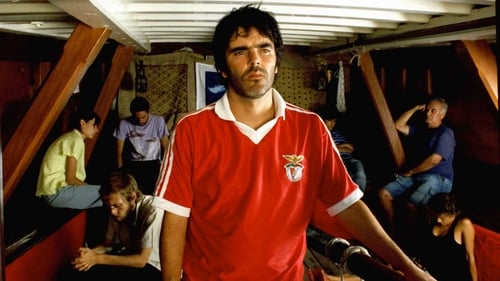
Rosa 3
Manuel bids farewell to his routine and boards a 15th century vessel under pirate law. Treason on board triggers a series of terrible events our protagonist overcomes while keeping his moral principles intact.

Mesmerized by the songs of Peroguarda villagers in southern Portugal’s Alentejo region, young Portuguese modern poet Antonio Reis, Corsican researcher of Portuguese folk music Michel Giacometti, and film director Paulo Rocha visited the village one after another in the late 1950s. This work refreshes the soul and flows with songs and poetry seeped in sadness, as well as the atmosphere of the quiet sea and village, fields adorned with vibrant red flowers, and roads traveled by Reis and the others, while interspersing images from Paulo Rocha’s films.

Music
Set in the Lisbon during the festivities of Saint Anthony, the patron saint of lovers and the old town. The story is about Cato, a nationalist politician who is charismatic and unscrupulous. He obsessively pursues Silvia, a mystical and mysterious young transvestite whom he meets at the festival. When Silvia runs into Vicente, a policeman who arrests transvestites and threatens them, Silvia must look towards blackmail to save herself. Compromising photos of Cato start to emerge among opposition parties and he must do all in his power to save his political career.

Blindman
Carolina, an aging local grande dame who works at a crossing point on the titular river, marries another late-in-life character, the dredging-boat operator Antonio. Not long after their union, she becomes intensely jealous of Antonio's fondness for their winsome goddaughter, Joana, and insinuates herself into a relationship brewing between Joana and a mystical gypsy gold salesman. Soon, tempers are flaring, mystical secrets are being revealed and death is hovering over the central characters.

Music
Carolina, an aging local grande dame who works at a crossing point on the titular river, marries another late-in-life character, the dredging-boat operator Antonio. Not long after their union, she becomes intensely jealous of Antonio's fondness for their winsome goddaughter, Joana, and insinuates herself into a relationship brewing between Joana and a mystical gypsy gold salesman. Soon, tempers are flaring, mystical secrets are being revealed and death is hovering over the central characters.

Self
Viajando por la experiencia y por las raíces de una de las manifestaciones más fuertes de la cultura popular portuguesa - el canto polifónico alentejano. Evocando a Michel Giacometti, la película cuestiona los orígenes del "canto" en el contexto de la cultura mediterránea.

Voice of Director (voice)
On an isolated Portuguese island, a nameless man makes a mental journey which brings him into contact with the strange and menacing world without peace and harmony.

Music
Mário, eight years old, a kid who begs in the tourist paradise of Madeira island. One day in his life, from morning to evening.

Husband in Restaurant
One night Jorge will meet with a Japanese industrialist, who will allow him to abandon his teaching position and resume his chemical work. However, when he gets home he finds a person there.

Mouzinho
At the end of the nineteenth century, an army force led by Major Mouzinho de Albuquerque, a cavalry officer, imprisoned in Mozambique the great regulative Governor Gungunhana, who had rebelled against Portuguese government and sovereignty
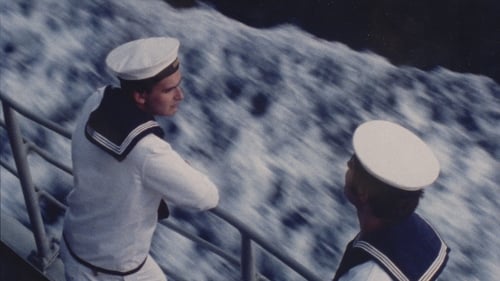
Alberto
Freely based on Gide ('Paludes') and Hawthorne ('Wakefield'), this is a film about a writer who never wrote anything and who blows at nightfall the breath of frost. The poem by Carlos Queiroz to which the above sentences belong is not cited in 'O som da Terra a Tremer', but the atmosphere is that, between written letters never received. Fiction within fiction, stories within stories, like those Chinese boxes in which there is always one inside another. Or the two margins of the same river, always being lateral.
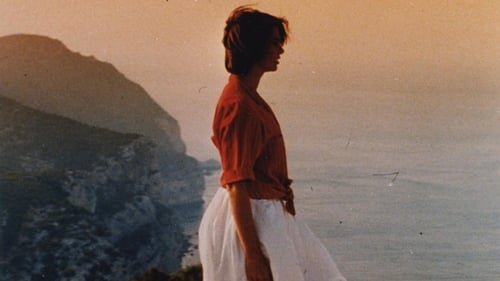
Singer in Arrábida
Summer of 1964. The professor Carlos and the couple Dário and Alda spend time together in the beach during vacations. Away from the colonial war, everything seems lost in time.

Music
Summer of 1964. The professor Carlos and the couple Dário and Alda spend time together in the beach during vacations. Away from the colonial war, everything seems lost in time.

Music
Una joven que trabaja como vendedora en el negocio de música de un centro comercial, quiere alguien con quien compartir sus secretos. No puede ser su madre, distante a causa de su inminente separación; tampoco su hermana preadolescente, ni su tía, que emigró a Francia. Ni siquiera su novio. Hasta que un día, la persona que espera Rita llega inesperadamente a su vida. Pero también aparece otro muchacho, y ya sabemos: tres son multitud. Alguien debe partir. (FILMAFFINITY)

Lyricist
One hundred years of Portuguese Football, from the first public experiments in 1888, in Cascais, the evolution in the twenties, the National Stadium, the glory of the sixties, the 25th of April until 1984.

Music
Director Jorge Silva Melo has developed a viable, though highly intellectual mystery story about the world of art and culture and murder in this somewhat theatrical presentation. When German artist Bernd Hoffmann (Michael König) arrives in Lisbon to oversee the installation of his paintings in a joint exhibition with another Berlin artist, Hanna Brauer (Charlotte Schwab), Hanna never shows up. Hoffmann is puzzled because he is certain he saw a video sequence with Hanna at the exhibition, and he begins to look for her. Another Lisbon cultural center, a theater, is also having problems that may or may not be related -- and the mystery deepens when Hanna is found dead, either by her own hand, or murdered.

Mário
Director Jorge Silva Melo has developed a viable, though highly intellectual mystery story about the world of art and culture and murder in this somewhat theatrical presentation. When German artist Bernd Hoffmann (Michael König) arrives in Lisbon to oversee the installation of his paintings in a joint exhibition with another Berlin artist, Hanna Brauer (Charlotte Schwab), Hanna never shows up. Hoffmann is puzzled because he is certain he saw a video sequence with Hanna at the exhibition, and he begins to look for her. Another Lisbon cultural center, a theater, is also having problems that may or may not be related -- and the mystery deepens when Hanna is found dead, either by her own hand, or murdered.

Original Music Composer
A picture of daily life punctuated by silence. In a village in the north, the daily routine of three families. Glimpses of Isabel, her eyes turned towards the future; for the others, living is the only meaning of life. The camera freezes moments of life through the movement of things in time, values and silence. - Cinéma du Réel
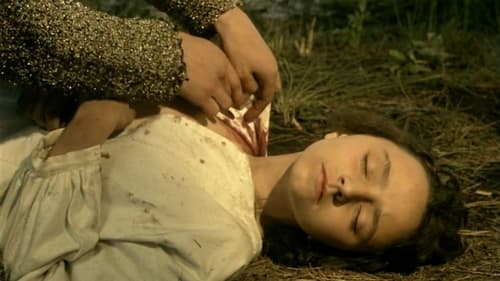
A bewitching combinatory adaptation of the Bluebeard tale and a 15th century Portuguese fable of a damsel who disguises herself as a knight errant.

Narrator (voice)
Using film and television footage taken during the revolutionary movement of April 25, 1974 in Portugal, and mixing it with music and live interviews with common people, the director conveys a vivid account of the period in which a military coup evolved to a socialist revolution, then was tempered into a formal European style democracy.

Music
In an imaginary future, Portugal consists of an association of states - North and South - with zones of specific influence. City under vigilance, Lisbon is inhabited by a repressed and militarized population. Maria and António stand out in this city and surrender themselves to a submersive love. 1978

Songs
Chronicle of resistance and hope - about Moncorvo, Trás-os-Montes: roots of the past, discourse of the future, the current reality.

narrator (voice)
The history of Portugal since the Republican revolution of 1910 to the revolutionary period following the military coup of April 24, 1974, recounted with a marxist perspective, using historic sound and film documents. The title refers to a trilogy of values proclaimed by Salazar, prime minister of Portugal in 1936.
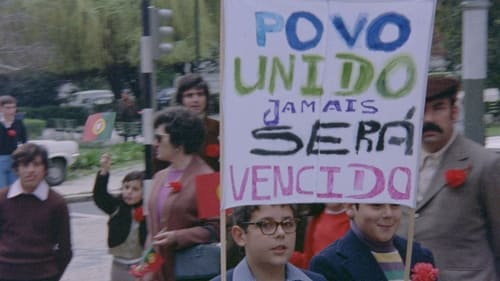
Music
Film directors with hand-held cameras went to the streets of Lisbon from April 25 to May 1, 1974, registering interviews and political events of the Portuguese "Carnations Revolution", as that period would be later known.

























